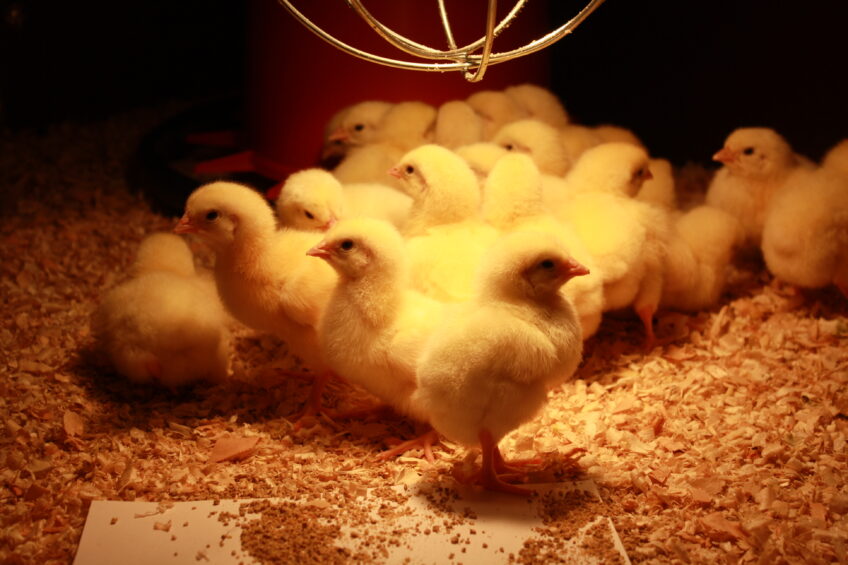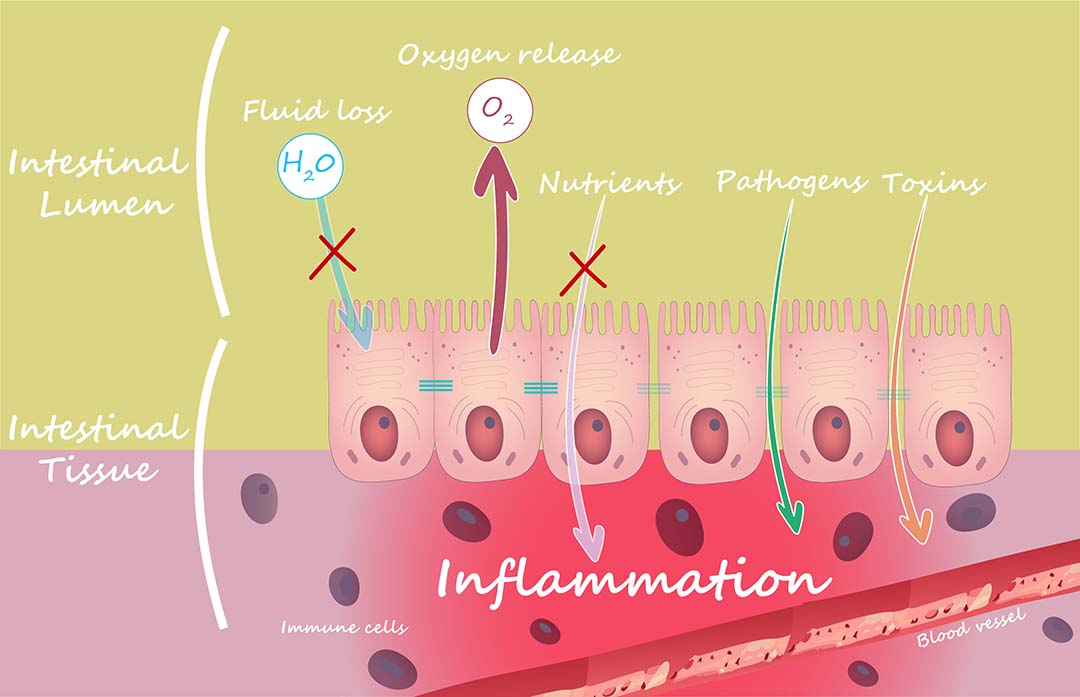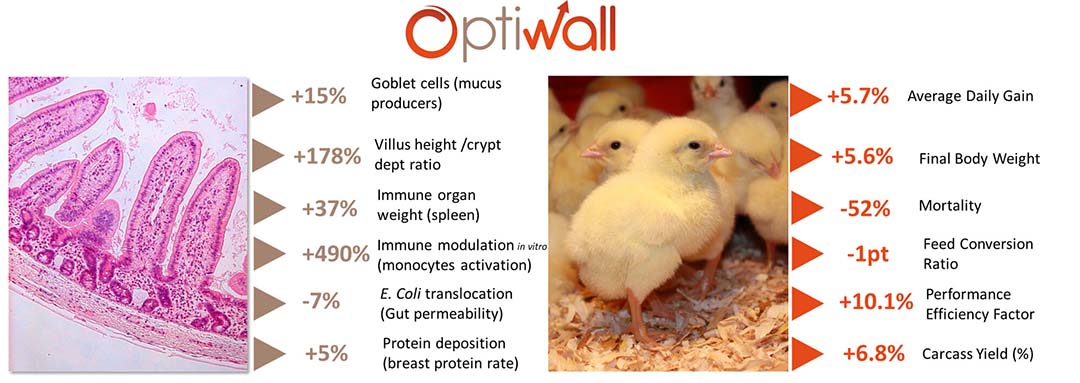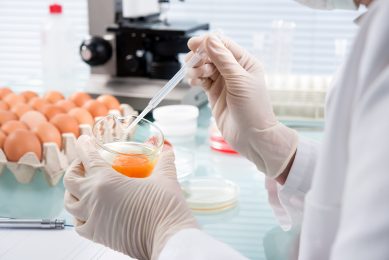Inflammation: The enemy of performance

The productivity and efficiency of modern poultry production, both in terms of eggs and meat, has evolved considerably. However, this genetic improvement has been reported to be associated with an increase in intestinal fragility.
Digestive pathologies remain a significant area of expenditure despite the sanitary efforts made throughout the production chain. The current observation is clear: sensitivity to stress is a major problem in poultry production. On farm, sources of stress are numerous: mycotoxins, heat stress, high feed intake requirements, variability of raw materials, bacterial, viral or parasitic infections, management (bird density, antibiotics, vaccinations, fasting, transport).
Inflammatory response
The intestine is an organ on the front line of exposure to these sources of stress and will respond to these stresses by emitting danger signals to the rest of the organism, in particular by triggering an inflammatory response. While this response is part of a normal physiological process, if it occurs regularly, inflammation can disrupt gut integrity and function. Especially when the host is in contact with an antigen it has not previously been exposed to at an early age in order to “educate” its immune system (which is often the case with the almost sterile way we produce our modern birds), or when inflammation lasts too long during continuous exposure to a source of stress. These 2 situations will progressively lead to a chronic inflammation state and birds will be less resilient to their environment.
The intestine can become fragile and increase in permeability, inducing the famous “leaky gut”, providing a gateway for certain toxins and opportunistic bacteria such as E. coli, Salmonella or Enterococcus into systemic circulation, leading to secondary infections.

The consequences of an excessive inflammation response are numerous: dysbiosis, gut damage, poor intestinal absorption, poor performance, deterioration of animal well-being and even mortality. Early education of the day-old chick’s sensitivity to danger signals in the intestine is key in maintaining poultry performance and health. Support during the earliest stage of life plays a critical role in the performance of modern poultry.
Positive research results
Successful early chick maturity at gut microbiota and immune level is obtained after supplementation of Optiwall in feed. This postbiotic solution has been selected and optimised by Lallemand offering a balanced, consistent, and guaranteed concentration of mannan-oligosaccharides and β-glucans. Both in vitro and in vivo trials performed with this natural postbiotic by leading experts display positive indicators of gut health: significant villi development, immune organ weight, mucus layer thickness, protein deposition within carcasses and gut permeability through a reduction of bacterial translocation in the liver.
Bird zootechnical performance is preserved due to better resilience to different naturally occurring sources of stress, as confirmed by a recent meta-analysis. Interestingly, a challenge trial conducted with 4 groups (standard with no Optiwall, standard fed Optiwall, E.coli contaminated birds with no Optiwall, E.coli contaminated birds fed Optiwall) all under chronic heat stress from day 13-42 (>30°C for at least 6 hours per day) has shown a 2.5 times reduction in mortality rate in non-E. coli challenged conditions and a 5.5 times reduction in mortality rate under E. coli challenged conditions.

Optiwall contributes towards chick gut preparation and maturity, as well as increased resistance for the prevention of chronic inflammation, resulting in higher economical performance.
References are available on request.




